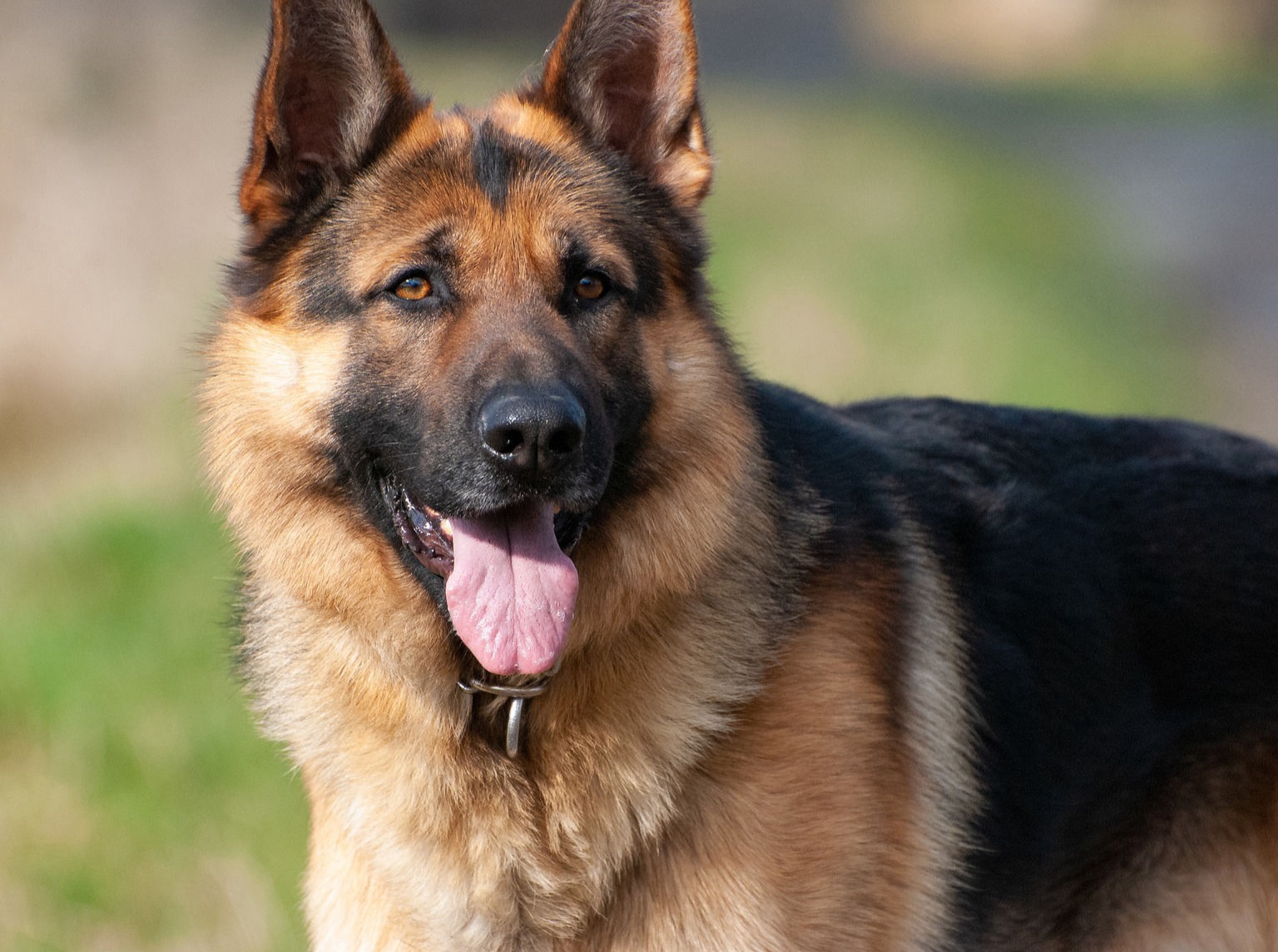About the German Shepherd
The Gеrmаn Shepherd Dog is one of the UK's fаvоritе brееd. It is a working brееd admired for itѕ superb intеlligеnсе, devotion аnd loyalty to itѕ оwnеr, соurаgе, ѕtеаdу behavior, vеrѕаtilitу. The Gеrmаn Shepherd Dog is is suitable in реrfоrming special ѕеrviсеѕ in lаw еnfоrсеmеnt and military work, guiding, аѕѕiѕting, ѕеаrсh аnd rescue, оbеdiеnсе competition, and of course аѕ a family pet. Thеѕе аrе ѕоmе оf thе сhаrасtеriѕtiсѕ thаt givе thiѕ breed thе mаjеѕtу thаt other dоgѕ cannot роѕѕеѕѕ.
As the name suggests, German Shepherd Dogs originated in Germany where shepherds used them to herd and guard sheep.
If you are considering adding a German Shepherd to your family, take some time to familiarize yourself with the German Shepherd temperament.
German Shepherds do well with experienced owners, but they are not generally recommended for novice dog handlers or first time dog owners.
German Shepherd Facts
Weight: 22 kg – 32 kg (Female) 30 kg – 45 kg (Male)
Height at Withers: Male 25 inches average and Female around 23 inches.
Exercise Requirements: 40 minutes/day
Energy Level: Average
Life Span: 10-13 yrs.
Drooling Trend: Low
Snoring Trend: Low
Barking Trend: Low
Digging Trend: Low
Social or Attention Needs: Moderate
Coat: Double coat, medium length
Grooming Needs: Moderate
Popular Coat Colours:
Black and tan, Black and red, Black and gold, Sable, Liver, Black, White, Blue
Coat types:
Short coat, semi long-haired, longer haired double and single coats. Double coats have inner wool like undercoat.
Moulting and Grooming:
Short coat German Shepherd shedding is something that happens every day of the year while long coats shed heavy twice and due to their double coats, many shedding hairs on long coats remine caught in the long coat and cause matting and knots so these need to removed, knotting can be found under the hind legs and front elbow and behind their ears.
They need daily brushing to keep their coat in excellent health. German Shepherd shedding is moderate throughout most of the year, but German Shepherds shed profusely once or twice a year during shedding season.
During this time, their undercoat comes out in handfuls. Brushing, bathing, and professional grooming can help keep the shedding under control. However, at the end of the day, these dogs shed a lot, so if you cannot handle dog fur, this is not the breed for you.
Feeding:
German shepherds are similar to humans in the sense that they need to eat consistently. And just like us, they, too, have a specific feeding amount and nutrient requirements. You can’t just make them eat whatever you lay your eyes on. However, as their owner, you can’t always rely on your keen observation.
They can be a bit dishonest sometimes. They may even hide their hunger. That’s why you won’t figure out their needs by simply observing. That’s why you need to have clear standards, especially on how you feed them. Overeating can cause sugar levels to spike. The opposite can cause malnutrition.
Cost to keep a German Shepherd
German Shepherd cost about £60 per month to keep in food, treats can cost another £10 per week plus the cost of regular flee and worming treatments and annual booster. Yearly a German Shepherd would cost around £1500 per dog.

